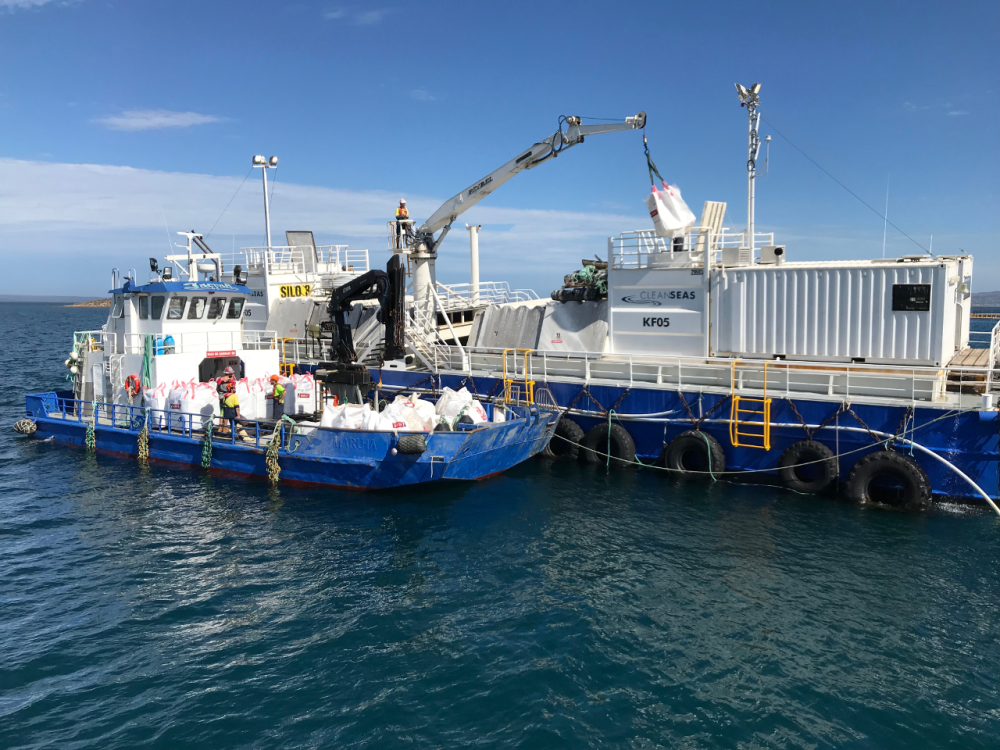1. Chile Report: Salmon Farming
At the beginning of 2019, we took the opportunity to visit salmon farming operations in the Chilean summer.

Almost 200 years ago Charles Darwin realised that the ability to adapt to changing circumstances offers the best chance of survival. This also includes learning from mistakes and not repeating them.
Changes in the sales markets triggered by the coronavirus pandemic have also taught us lessons. In this short blog post we would like to go into three lessons we have learned in the course of our analytical work.
Some investors are no longer capable of hearing about the relevance of quality from their investment advisors, but it is central in every market environment. Quality can be defined in different ways. For us, it primarily includes capable management combined with long-term planning and the ability to adapt when the environment demands it. The remaining ingredients, such as solid finances, willing investors, steadily growing business areas and motivated employees, can usually be developed by capable managers. Another quality factor that sets companies apart from competitors is their independence from third parties. Partnerships are very often useful, but during a crisis everyone has to focus on their own problems. In the field of protein production, success over the last 12 months has been very dependent on whether or not companies have their own processing and distribution channels.
Due to low fish prices, companies which concentrated solely on farming lagged behind those with processing capabilities. Companies with control over every stage of the value chain right through to the sales market were successfully able to divert volume away from restaurants to supermarkets, and to win new customers by proving themselves as reliable, innovative suppliers. Another essential quality factor is cost control. In a market with falling prices, the producer with the lowest manufacturing costs will survive the longest. As the only remaining player when the market normalises, this producer will be in a position to reap unimaginable benefits. Marginal producers should therefore only be bought if increasing demand causes the market price to rise sustainably over several years. A single year of weak sales prices can mean ruin for a company of this type or its shareholders. Quality is and will therefore remain the most important feature to consider when investing.
When describing aspects of quality, we mentioned steadily growing business areas. The opposite of this is a one-off period of vigorous growth. With regard to the production of fish proteins, we are talking about doubling production volume in the space of one year. For fish, this production cycle usually lasts 3-4 years, but biomass and thus the products available for sale can double within a year, especially in small and medium-sized companies. This happened at two of our portfolio companies which, before the pandemic, accounted for less than 4% of the total allocation in our largest fund. We liked their investment profiles because in a normal year the global market would have absorbed the additional volume without a price reaction. Operationally speaking, this period of strong growth was managed extremely well, however the timing was very unfortunate. In the midst of the global coronavirus pandemic, which caused the complete shutdown of individual sales channels, the sales departments of these two companies had to sell twice the volume.
Withholding these perishable goods from sale or freezing them was not an option, because high growth ties up capital (e.g. feeding of biomass). In this situation, the capital either had to be reinvested or, in the case of borrowed capital, at least partially repaid to financial institutions. The fish was then sold for less than its production cost, which ultimately resulted in capital increases for both companies. At one of the two companies, we supported the capital increase during this low point. The decision was correct, as shares are now more than 60% above the issue price. The second company, where we left the injection of new funds to other investors, is suffering a little longer from the low fish prices. Today the stock is trading 20% below the price at which new capital was raised. From this dilution of profits, we learned that strong growth of this type should only occur with limited use of borrowed capital. It would be out of place, however, to blame the executives of these companies. As far as we know, this is the first time that a peacetime government has ever forced the closure of hotels and restaurants in this way.
The third lesson we learned targets diversification within companies. The saying “Don't put all your eggs in one basket” applies not only to investors, but also to the respective companies themselves. Our first example of this comes from Chile, where one of our portfolio companies runs a salmon farm as well as a regulated wild fishing operation. The majority of the wild-caught species are processed into fish meal and fish oil as ingredients for animal feed. While the sales channels for salmon for human consumption changed dramatically from one day to the next, the market for animal feed remained practically unaffected. The same customers bought the same quantities. Changes in consumption in this segment will only be noticed much later, if protein growers were to cut production, which is rather unlikely given the world’s expanding population. The prices for fish meal and fish oil even rose slightly. Thanks to this and good wild catch yields, the diversified company was able to cross-finance its temporarily unprofitable salmon farming operation. If it had been dependent on its aquaculture division alone, a capital increase and corresponding dilution of profits would have been inevitable. Our second example of strong diversification paired with corporate quality comes from Denmark. The conglomerate, managed by the holding company’s streamlined headquarters, spans six completely different segments.
The largest of these is the independent specialist fish feed production segment, which represents more than 50% of the conglomerate’s turnover. Similar to the Chilean example, this segment felt little headwind. In the last quarter of 2020, however, the shrimp feed business was affected in one specific market. Another of the holding company’s smaller segments, which is linked to cyclical industries, weathered 18 difficult months but began to recover strongly towards the end of the year. Two more of the holding company’s segments with special textile processing technologies adapted extremely well to the coronavirus pandemic by switching their manufacturing efforts to the production of urgently needed hygiene products and thus achieving record profits outside of their core business. In total, the holding company achieved an EBIT growth of 13% in 2020. It also paid back debts from its last investment spurt in 2018, and was even able to build up liquidity for the next phase of investment within the conglomerate. The past 12 months have shown that diversification plays an important role in companies. Despite having demonstrated resistance to the crisis, certain listed companies are finding that the market is still not ready to pay a fair price. Investors won’t go away empty-handed, however, because stagnating prices combined with an improved earnings situation mean more shareholder dividends. Some stocks are likely to appear on institutional investors’ radars when they start to pay high single-digit dividend yields, if not before. Fortune favours the patient.
What lessons have you learned from this year of crisis?
Have you changed your portfolio allocation due to COVID-19?
What does "quality" mean for you in a company?
Do you think value stocks will be a better choice over the next few years?
We’d love to read your comments.

Comments